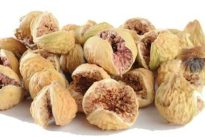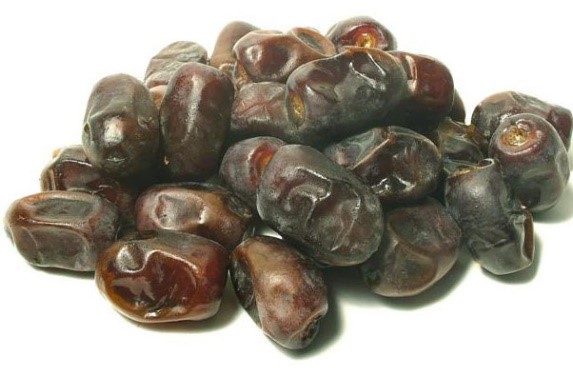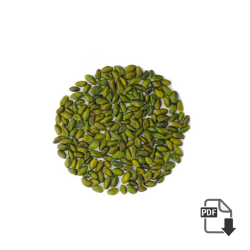Can Figs Be Frozen? A Guide to Preserving Freshness and Flavor
Figs are a delicious and nutritious fruit enjoyed in various dishes and snacks. Whether you have a bounty of fresh figs from your garden or want to make the most of a seasonal sale, freezing is an excellent way to preserve their freshness and flavor. But can figs be frozen? In this guide, we’ll explore everything you need to know about freezing figs, including the best methods and tips for maintaining their quality.
Benefits of Freezing Figs
Freezing figs offers several advantages, particularly if you want to extend their shelf life and enjoy them year-round. Here are some key benefits of freezing figs:
- Extended Shelf Life: Fresh figs are highly perishable and can spoil quickly. Freezing them allows you to store figs for several months without worrying about them going bad.
- Convenient Access: Having frozen figs on hand means you can enjoy their sweet, unique flavor any time you want. This is especially useful for incorporating figs into smoothies, baked goods, or recipes when figs are out of season.
- Reduced Waste: Freezing figs can help reduce food waste by allowing you to preserve surplus fruit instead of letting it go to waste.
How to Properly Freeze Figs
Freezing figs is a straightforward process, but following the right steps is crucial to maintain their taste and texture. Here’s a step-by-step guide:
- Select and Prepare Figs: Choose ripe, fresh figs for freezing. Wash them gently under cold water to remove any dirt or residues. Pat them dry with a paper towel.
- Pre-Freezing Preparation: To prevent figs from sticking together, arrange them on a baking sheet in a single layer. This process, known as flash freezing, helps keep the figs separate and makes it easier to portion them later.
- Freezing: Place the baking sheet in the freezer and allow the figs to freeze for a few hours until they are solid. Once frozen, transfer the figs to airtight freezer bags or containers. Label them with the date to keep track of their freshness.
- Storage: Store frozen figs in the freezer. They can be kept for up to 8-12 months, although they are best enjoyed within the first 6 months for optimal flavor and texture.
https://www.irandriedfruit.com/food-value-fig/
Using Frozen Figs in Recipes
Frozen figs are incredibly versatile and can be used in a variety of recipes. Here are some ideas to get you started:
- Smoothies: Blend frozen figs with other fruits, yogurt, or milk to create a delicious, nutrient-packed smoothie.
- Baked Goods: Incorporate frozen figs into muffins, bread, or cakes for a burst of natural sweetness.
- Sauces and Jams: Use frozen figs to make homemade fig jam or sauces for topping desserts and savory dishes.
Thawing and Preparing Frozen Figs
When you’re ready to use frozen figs, you can thaw them in several ways:
- Refrigerator Thawing: Place the frosen figs in the refrigerator for several hours or overnight to thaw gradually. This method helps maintain the figs’ texture.
- Quick Thawing: For a faster option, place the figs in a microwave-safe bowl and use the defrost setting on your microwave, checking frequently to avoid overheating.
Keep in mind that thawed figs may be slightly softer than fresh ones, but they retain their delicious flavor and can be used effectively in many recipes.
Conclusion
Freezing figs is a practical and effective way to preserve their sweetness and nutritional benefits. By following proper freezing techniques and using frozen figs in a variety of dishes, you can enjoy this delightful fruit all year round. Whether you’re planning to use them in smoothies, baked goods, or homemade jams, freezing figs is a great way to make the most of this seasonal fruit.
All Type Of figs
-
Dried Fig Open Mouth Special wholesale price + analysis + sale offer
We mostly export Dried fig open mouth to East Asia countries such as China, Hong Kong, and Korea. The demand is high for this type of figs due to its reasonable quotation. Figs are mostly used in snacks, confectionery and…
-
Dried Fig Close Mouth Special wholesale price + analysis + sale offer
We mostly export Dried fig close mouth to East Asia countries such as China, Hong Kong, and Korea. The demand is high for this type of figs due to its reasonable quotation. Figs are mostly used in snacks, confectionery and…
-
Pressed Fig Special wholesale price + analysis + sale offer
We mostly export Pressed Fig to East Asia countries such as China, Hong Kong, and Korea and India. The demand is high for this type of figs due to its economical prices and high moisture. This kind of Figs is…










 3 kind raisin
3 kind raisin 


